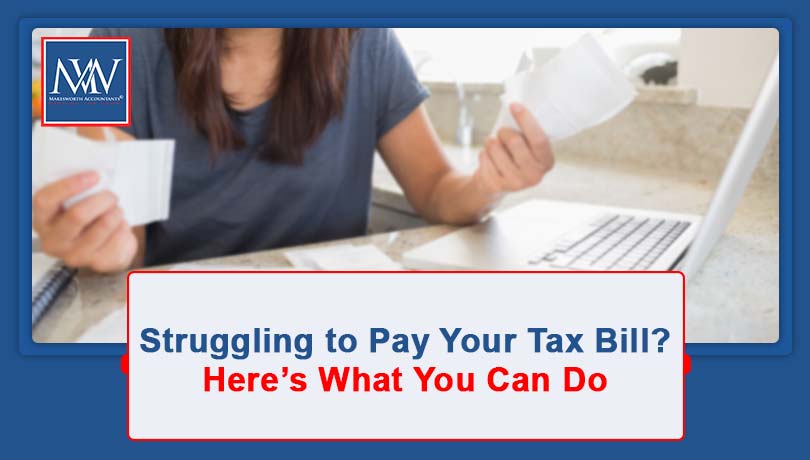-
info@makesworth.co.uk
-
Mon - Fri: 9:30 AM - 6:00 PM

As the cost of living crisis continues, many individuals may struggle to meet their Self-assessment tax bill by the 31 January 2025 deadline. Ignoring the issue won’t make it go away; it will only worsen due to accumulating interest and penalties. Fortunately, several options are available to help you manage your tax liability.
If you owe £3,000 or less and meet specific criteria, HMRC can collect the amount due by adjusting your tax code for the 2025/26 tax year. This option is interest-free and a convenient way to pay in installments. To qualify:
For larger amounts, you can spread your tax payments through a Time to Pay Arrangement with HMRC. Here’s what you need to know:
If you can borrow money at a lower interest rate than HMRC’s rate, it may be worth considering that option instead of setting up a Time to Pay Arrangement.
Planning for future tax bills can help you avoid financial strain. A Budget Payment Plan with HMRC enables you to make regular weekly or monthly payments towards your next Self-assessment bill. Here’s how it works:
To set up a Budget Payment Plan, ensure your tax affairs are up to date and use your online HMRC account.
If your tax and Class 4 NIC bill for 2023/24 exceeds £1,000 and less than 80% of your tax is deducted at source, you’ll need to make payments on account for the 2024/25 tax year. These payments are due in two installments: 31 January 2025 and 31 July 2025, each equal to 50% of your prior year’s bill.
Managing your tax bill can be challenging, especially during tough economic times. By exploring options like coding out, Time to Pay Arrangements, Budget Payment Plans, or reviewing payments on account, you can ease the financial burden and avoid unnecessary penalties. Taking proactive steps is key to staying on top of your tax obligations.
For more guidance, visit: HMRC’s website.